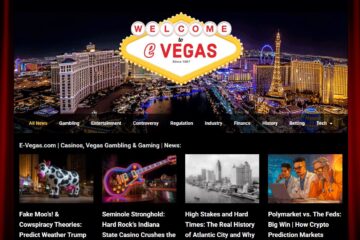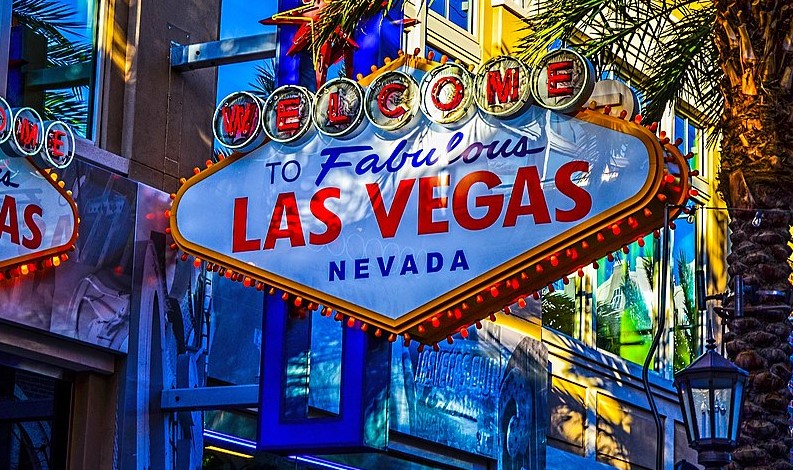The Future of Prediction Markets in America’s Newly Legal Sports Betting Landscape: Beyond the Game
In recent years, the U.S. has witnessed a dramatic shift in its sports betting landscape, as more states embrace the legalization of sports wagering. With the Supreme Court’s 2018 ruling to strike down the Professional and Amateur Sports Protection Act (PASPA), a floodgate opened for states to regulate and tax sports betting, unlocking significant market potential. But as the industry continues to grow and evolve, a new trend is emerging on the horizon: prediction markets. These markets, which allow individuals to bet on the outcome of various events, are poised to become a crucial part of the betting ecosystem.
While sports betting remains the focal point of this legal revolution, prediction markets are expanding the scope of the wagering landscape, offering bettors opportunities beyond the athletic arena. From elections to entertainment to weather forecasts, the possibilities are vast. This article explores how prediction markets could reshape America’s sports betting sector and why this vertical is much more diverse than just sports.
What Are Prediction Markets?
Prediction markets, sometimes called “event markets” or “forecasting markets,” allow participants to buy and sell contracts based on the likelihood of future events occurring. These events could range from who will win a political election to the likelihood of a celebrity getting a major movie role. In essence, prediction markets function as “markets for knowledge,” where participants use their collective wisdom to forecast future events.
These markets are based on the principle of crowdsourced intelligence, where the aggregated information and insights of a large group of people are often more accurate than any single expert. The participants in these markets can profit if they accurately predict outcomes, but they also face financial risk if their predictions fall short.
The Rise of Legal Sports Betting in the U.S.
Since the PASPA decision, over 30 states and counting have legalized sports betting, with markets ranging from traditional wagering on games (point spreads, over/under) to more exotic bets like prop bets and live in-game betting. Sports betting is expected to be a multi-billion-dollar industry in the U.S. by the end of the decade, contributing not only to state revenues but also to the broader gambling ecosystem.
As states legalize sports betting, regulators and operators are finding innovative ways to capture bettor interest and engagement. While sportsbooks have quickly adjusted to offering traditional sports betting markets (football, basketball, etc.), one untapped opportunity lies in integrating prediction markets into the existing framework.
How Prediction Markets Could Impact U.S. Sports Betting
1. Expanding the Range of Betting Opportunities
Traditional sports betting focuses on specific games, teams, and events, but prediction markets can widen the scope of betting by introducing new forms of bets. Instead of merely betting on who will win the Super Bowl, bettors could wager on more granular outcomes, such as:
- Who will score the most touchdowns in a given week?
- Will a team’s star player be traded before the end of the season?
- What will be the total number of injuries across the league during the season?
By expanding the possibilities for betting, prediction markets could entice a new breed of bettors who are more interested in nuanced, outcome-based predictions than simply picking a winner.
2. More Engaged and Knowledgeable Bettors
Prediction markets thrive on the participation of knowledgeable individuals who are well-informed about the events they’re betting on. In the context of sports betting, this could lead to more educated bettors who focus on factors such as team dynamics, player performance, injury reports, and historical trends rather than just placing bets based on fan loyalty or gut feelings. Sportsbooks could even incorporate prediction markets into the odds-making process, using these markets to gauge public sentiment and identify potential shifts in betting behavior.
3. Increased Consumer Engagement with Non-Sports Events
One of the most exciting aspects of prediction markets is their versatility. While sports betting may dominate the initial stages of this new landscape, prediction markets can easily diversify into non-sporting events. With the growing popularity of political betting, entertainment predictions (e.g., “Will the next Marvel movie gross over $1 billion?”), or even environmental events (e.g., “Will the U.S. experience a significant drought next year?”), operators could open entirely new verticals within the legal betting space.
Beyond Sports: How Prediction Markets Will Diversify the Betting Landscape
1. Politics: The New Frontier of Betting
One of the more intriguing areas where prediction markets have taken off globally is politics. With the increasing polarization in U.S. politics, people are turning to prediction markets to gauge the likelihood of outcomes like presidential elections, state-level races, or even specific policy changes. This creates a novel form of engagement for politically active individuals who may not typically be drawn to traditional sports betting.
In states where political betting becomes a legalized and regulated activity, prediction markets could serve as an innovative tool for bettors to place wagers on the outcomes of debates, voting trends, or significant legislative shifts.
2. Entertainment and Celebrity Culture
Another vertical ripe for prediction markets is the world of entertainment and celebrity culture. Markets could be established for bettors to predict outcomes such as:
- Will a particular celebrity marry within the next year?
- Will a movie franchise be rebooted in the next 5 years?
- Will a musical artist win a Grammy next year?
This kind of betting appeals to fans of pop culture and provides a different type of engagement compared to traditional sports betting. As media consumption grows increasingly fragmented and diverse, prediction markets could cater to the interests of specific fandoms and niche communities.
3. Weather and Environmental Events
Another potential growth area for prediction markets is the weather and environmental space. Bettors could predict major weather events, like hurricanes, floods, or wildfires, or wager on environmental outcomes, such as the likelihood of a specific region meeting climate goals. While this might seem far-fetched at first, the truth is that weather forecasting is increasingly becoming a precision science with vast amounts of publicly available data, making it a logical extension for prediction market operators to explore.
Challenges and Regulatory Considerations
As exciting as the potential integration of prediction markets into legal sports betting is, there are several hurdles to overcome. First, regulatory frameworks must be developed that allow for the smooth integration of these markets without running afoul of existing gambling laws. States that have already legalized sports betting might need to make changes to accommodate new forms of betting, particularly as it pertains to non-sporting events.
Second, there are potential ethical and social concerns. Some argue that widespread betting on political events, for example, could encourage gambling on sensitive matters or exploit vulnerable groups. Ensuring transparency, fairness, and the protection of consumer interests will be crucial in mitigating these risks.
Conclusion: The Sky’s the Limit for Prediction Markets
As America’s sports betting industry continues to grow, it’s clear that prediction markets will likely play a key role in diversifying the ecosystem. While sports betting will remain the core focus, the verticals available to bettors will evolve, encompassing everything from political elections to environmental forecasts and entertainment outcomes. With proper regulation and consumer protection, prediction markets could become the next frontier in the legal betting revolution.
Ultimately, prediction markets could turn the act of betting into something more than just a game of chance—it could become a way for individuals to participate in shaping the future, armed with information and the collective wisdom of the crowd. The possibilities are vast, and it’s only a matter of time before we see how this exciting trend will unfold in the U.S. betting market.


